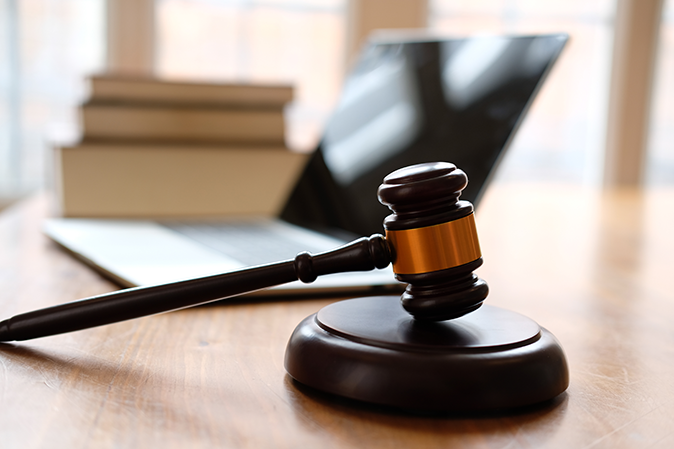Welcome to BARBRI, the trusted global leader in legal education. Continue to access the same expert-led Strafford CLE and CPE webinars you know and value. Plus, explore professional skills courses and more.
About the Course
Introduction
This CLE course will advise corporate attorneys on the current U.S. Department of Justice (DOJ) guidance on enforcement policies. The panel will discuss the use of incentives and punishments DOJ is using to encourage companies to be more proactive to ensure compliance, as well as how to properly resource compliance programs. The panel will address how DOJ will consider a company's civil, criminal, and regulatory history and what constitutes cooperation credit under the current administration.
Description
In late 2021 the DOJ announced policies and rolled out a series of initiatives signaling a solid commitment to corporate criminal enforcement. Primarily, this involved reverting to many of the previously enforced policies under the Yates memo. However, the DOJ's Monaco memo outlines an even more comprehensive regulatory framework.
Under the DOJ's current policies, companies must provide all non-privileged information about individuals involved in or responsible for the misconduct to be eligible for cooperation credit. This shift from prior policies gave companies more leeway regarding disclosures, limiting it to individuals who were determined to be "substantially involved" in misconduct.
Corporate counsel must be aware that the DOJ will consider the complete criminal, civil, and regulatory record under investigation when looking at a company's potential recidivism to determine the appropriate resolution. Prosecutors will assess actions beyond DOJ, including cases in other jurisdictions--domestic and foreign--and cases involving state enforcement authorities.
Additionally, counsel should know that corporate monitorships will not be disfavored. The DOJ may require independent monitors to satisfy requirements that a company meets its compliance and disclosure obligations under deferred prosecution agreements and non-prosecution agreements.
Listen as our authoritative panel advises on the current DOJ compliance policies under the Biden administration and how corporate crime will be investigated and potentially punished.
Presented By

Mr. Bell represents clients in civil and criminal enforcement, litigation, compliance counseling and regulatory advocacy under the major environmental, health, safety and natural resource laws. He conducts internal investigations, responds to grand jury investigations and agency information requests, and negotiates consent, probation, and debarment agreements. Mr. Bell helps clients evaluate and implement compliance and ethics programs under the U.S. Sentencing Commission’s and DOJ’s guidelines, and has assisted companies around the world successfully implement environmental, health and safety management systems. He recently completed a five-year stint as U.S. EPA Independent Monitor overseeing Duke Energy’s compliance with a complex set of debarment and probation agreements arising from Duke’s guilty pleas to criminal violations of the Clean Water Act.

Mr. DiBianco is a trusted adviser to senior management and boards of directors faced with complex government or internal investigations. A core member of the firm’s Washington, D.C. government enforcement defense practice, he strategically guides and defends clients against their most challenging enforcement and investigation-related inquiries.

Ms. Ward represents clients facing government enforcement matters, conducts internal investigations to respond to government investigations, and litigates government related issues. She also assists clients with an array of health care transactional and operational issues. She is certified in health care compliance by the Compliance Certification Board and helps clients evaluate and respond to compliance related matters, design and implement compliance programs, conduct compliance reviews, and advise on disclosure obligations. Her expertise includes Anti-Kickback Statute and Stark Law compliance, Medicare and Medicaid billing, and Controlled Substances and False Claims Acts. Ms. Ward has more than 14 years of experience serving as an Assistant United States Attorney for the Eastern District of Wisconsin and served as the Deputy Chief of the Civil Division. In those roles, she investigated and prosecuted individuals and corporations for civil health care fraud and other enforcement matters.
-
This 90-minute webinar is eligible in most states for 1.5 CLE credits.
-
Live Online
On Demand
Date + Time
- event
Thursday, July 28, 2022
- schedule
1:00 p.m. ET./10:00 a.m. PT
- 2022 DOJ compliance with corporate criminal enforcement
- Yates memo
- Monaco memo
- Cooperation credit
- Criminal, civil, and regulatory history
- Monitorships
- Best practices
The panel will address these and other relevant topics:
- What risks to companies exist when providing non-privileged information during an investigation?
- How will reviewing a company's criminal, civil, and regulatory record affect potential enforcement and punishment?
- What types of independent monitors may be utilized in place of corporate monitorships?
Unlimited access to premium CLE courses:
- Annual access
- Available live and on-demand
- Best for attorneys and legal professionals
Unlimited access to premium CPE courses.:
- Annual access
- Available live and on-demand
- Best for CPAs and tax professionals
Unlimited access to premium CLE, CPE, Professional Skills and Practice-Ready courses.:
- Annual access
- Available live and on-demand
- Best for legal, accounting, and tax professionals
Unlimited access to Professional Skills and Practice-Ready courses:
- Annual access
- Available on-demand
- Best for new attorneys
Related Courses

Multinational Data Privacy Compliance: Managing EU and UK Regulatory Requirements
Tuesday, March 24, 2026
1:00 p.m. ET/10:00 a.m. PT

California Climate Disclosure Laws: Compliance Strategy for SB 253 and SB 261
Available On-Demand
Recommended Resources


Expert Interview: Tara Waters and How AI Can Bring People Together
- Legal Technology

